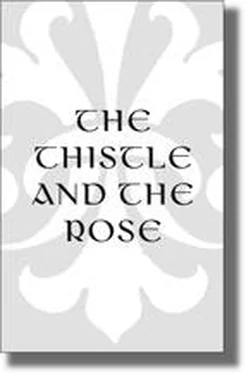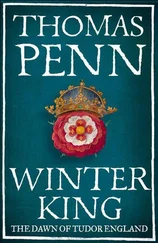Jean Plaidy - To Hold the Crown - The Story of King Henry VII and Elizabeth of York
Здесь есть возможность читать онлайн «Jean Plaidy - To Hold the Crown - The Story of King Henry VII and Elizabeth of York» весь текст электронной книги совершенно бесплатно (целиком полную версию без сокращений). В некоторых случаях можно слушать аудио, скачать через торрент в формате fb2 и присутствует краткое содержание. Жанр: Старинная литература, на русском языке. Описание произведения, (предисловие) а так же отзывы посетителей доступны на портале библиотеки ЛибКат.
- Название:To Hold the Crown: The Story of King Henry VII and Elizabeth of York
- Автор:
- Жанр:
- Год:неизвестен
- ISBN:нет данных
- Рейтинг книги:5 / 5. Голосов: 1
-
Избранное:Добавить в избранное
- Отзывы:
-
Ваша оценка:
- 100
- 1
- 2
- 3
- 4
- 5
To Hold the Crown: The Story of King Henry VII and Elizabeth of York: краткое содержание, описание и аннотация
Предлагаем к чтению аннотацию, описание, краткое содержание или предисловие (зависит от того, что написал сам автор книги «To Hold the Crown: The Story of King Henry VII and Elizabeth of York»). Если вы не нашли необходимую информацию о книге — напишите в комментариях, мы постараемся отыскать её.
To Hold the Crown: The Story of King Henry VII and Elizabeth of York — читать онлайн бесплатно полную книгу (весь текст) целиком
Ниже представлен текст книги, разбитый по страницам. Система сохранения места последней прочитанной страницы, позволяет с удобством читать онлайн бесплатно книгу «To Hold the Crown: The Story of King Henry VII and Elizabeth of York», без необходимости каждый раз заново искать на чём Вы остановились. Поставьте закладку, и сможете в любой момент перейти на страницу, на которой закончили чтение.
Интервал:
Закладка:
They said he had died of a fever but everyone suspected poison. The matter was not investigated very thoroughly because it was remembered that Ferdinand’s envoy had been in Burgos at that time; and with Philip dead, Charles a child, and Juana mad, Ferdinand would become Regent of Castile.
King Henry was astounded by the news. The Prince of Wales shed tears. Philip had been so young, so handsome, so vital, that it was impossible to think of him dead . . . and almost certainly by poisoning. Young Henry wanted to go to Burgos to sift the matter, to find the murderer and inflict terrible tortures on him. “He was my friend,” he said. “We loved each other.”
Charles Brandon was a little cynical, but he did not voice his thoughts. People were beginning to be careful what they said to the Prince.
The King was thinking: that schemer Ferdinand will be in control now. And he wondered what would happen about those plans he had discussed with Philip during his enforced stay in England. What of the bonds of friendship; what of the marriage with Archduchess Margaret?
He was soon to hear that Margaret did not wish to marry the ageing King of England, and he was sure that the proposed marriage between Eleanor of Castile and young Henry would be pushed aside now that Ferdinand would be in control.
What had come out of all the lavish entertainments given to Philip? Henry groaned at the thought of the cost. And what had been gained? He had spent so much time, energy and above all money cultivating the friendship of a man who had died before the year was out.
It seemed that all the good that had come out of that visit was the return of Edmund de la Pole, who was now the King’s prisoner in the Tower.

The King was feeling very weary. His rheumatism was worse; his skin was turning yellow; and he felt ill for a great part of the time.
If I could find a wife, he thought, I should be rejuvenated. It was amazing that with all he had to offer—a crown no less—it should be so difficult to find anyone who wanted it.
Why? Was this an indication of what people were thinking about his hold on that glittering and most desired object?
His friends and ministers implied that he was not his usual wise self in allowing this obsession with holding the crown to play such a big part in his life. They had implied that he had it firmly in his grasp. He had brought much good to England. He had taxed the rich until they groaned and complained bitterly; but he had a strong economy; he had a prosperous country; and if he demanded taxes from all those who could afford to pay them—as well as from those who could not—he had never lived extravagantly. None could say that the money squeezed from his long-suffering subjects was spent on his own amusements. He was never extravagant unless deep consideration told him that it was wise to be so. Money was only spent if it could bring back gains which exceeded the expense.
And then suddenly he had the idea. Juana! She was a widow now. She was very attractive—quite a beauty in fact. She was Queen of Castile. Why should she not come back to England as his bride?
He sent for Dr. de Puebla and sounded him.
De Puebla had aged considerably and the damp climate of England had not been good for his health. Yet he stayed on knowing that his position as the go-between and friend of the King of England, though he served a Spanish master, was more interesting and remunerative than anything he could have attained in Castile.
De Puebla was a little taken aback at the King’s suggestion.
“My lord . . . she is but recently widowed. She is not quite balanced as you saw for yourself. Moreover she remains so enamored of her late husband that she has had him embalmed and carries his coffin about with her wherever she goes. She has just given birth to a daughter. . . . It seems hardly the time. . . .”
Hardly the time! Time was a sore point with the King. He could feel it slipping away from him. He must get a wife quickly.
“She has shown that she is fertile,” said the King. “She is beacutiful. She pleases me very much.”
“My lord, you know of her mental instability.”
“Mental instability does not prevent the bearing of children. I want sons, and I want a wife quickly to bear them for me.”
“I will acquaint King Ferdinand with your wishes,” said de Puebla.
“And you will tell him what an excellent prospect this is for his daughter. She will be Queen of England.”
“A title he hoped for another of his daughters,” said de Puebla. He had long deplored his inability to bring about that marriage. He knew that Ferdinand relied on him to do so; but all he had been able to report was the continual bickering about the dowry.
“That is another matter,” went on the King. “If Ferdinand will not pay the remainder of that long-overdue dowry I shall have to consider the match between his daughter Katharine and my son at an end.”
Ah, thought de Puebla. He desperately wants marriage with Juana. Can this be used as a bait to bring about the marriage between Katharine and the Prince of Wales?

Katharine was cheered a little during those months. The King had written to her saying that he loved her and could not endure to think of her worried about money; he enclosed two hundred pounds, which he trusted would be of some help to her.
Katharine smiled wanly. She knew what was going on. Scraps of gossip came to her. The King was hoping to marry Juana and was in correspondence with her father because of this. The longstanding trouble about the nonpayment of the dowry would be revived and it was clear that hoping for Juana, the King was realizing that he must still hold out the possibility of a marriage between Katharine and the Prince of Wales.
It was all very cynical but she supposed she must be grateful for help, for whatever reason it was given.
Ferdinand, long disappointed and suspicious of de Puebla, replaced him by Don Gutierro Gomez de Fuensalida who was very different from his predecessor—elegant, courtly, in fact what was expected of a Spanish ambassador, and one who had already served Ferdinand at the Courts of Maximilian and Philip, so he was known to be skilled in diplomacy.
Negotiations dragged on. Ferdinand sent word that Juana who was after all Queen of Castile refused to be parted from her late husband’s coffin and wherever she went it was taken with her. She could scarcely be expected to consider another marriage while she was in that state.
But the King continued to plan. It was as though he were clinging to Juana as his last hope. He was quite ill during the beginning of the year and the Prince of Wales began to behave as though he already wore the crown. He was no longer a boy and people were saying it could not be long now before he was the King.
If the older Henry was hoping desperately for a bride the young one was longing to put the crown on his own head.
Maximilian agreed that his grandson Charles should have the King’s youngest daughter, Mary. There were grand celebrations because of this and Katharine was seen in the tiltyard seated beside the King and he was heard to refer to her as his daughter.
It was spring of the year 1508 when the English emissary whom Henry had sent to Castile to find the real truth behind the diplomacy returned with the news that Ferdinand had secretly announced that he had no intention of allowing Juana to marry anyone. She was mad; and he was going to rule Castile in her name.
Henry was incensed.
He was feeling more and more wretched. He had emerged from the winter more or less crippled with rheumatism; he was in constant pain and none of his physicians could alleviate it. His temper, which for so long he had kept admirably under control, broke out.
Читать дальшеИнтервал:
Закладка:
Похожие книги на «To Hold the Crown: The Story of King Henry VII and Elizabeth of York»
Представляем Вашему вниманию похожие книги на «To Hold the Crown: The Story of King Henry VII and Elizabeth of York» списком для выбора. Мы отобрали схожую по названию и смыслу литературу в надежде предоставить читателям больше вариантов отыскать новые, интересные, ещё непрочитанные произведения.
Обсуждение, отзывы о книге «To Hold the Crown: The Story of King Henry VII and Elizabeth of York» и просто собственные мнения читателей. Оставьте ваши комментарии, напишите, что Вы думаете о произведении, его смысле или главных героях. Укажите что конкретно понравилось, а что нет, и почему Вы так считаете.












